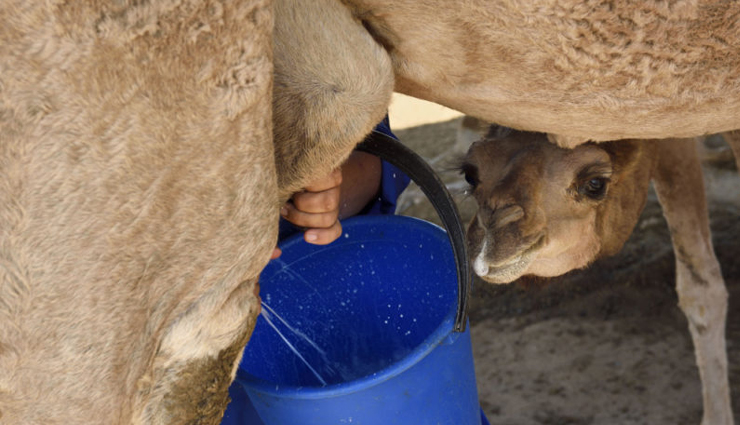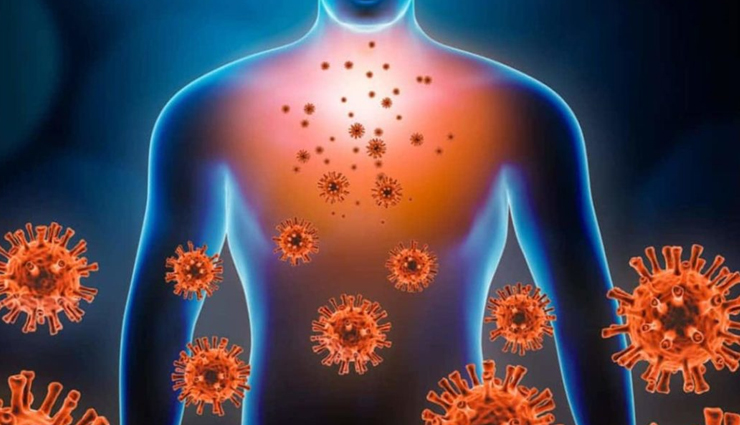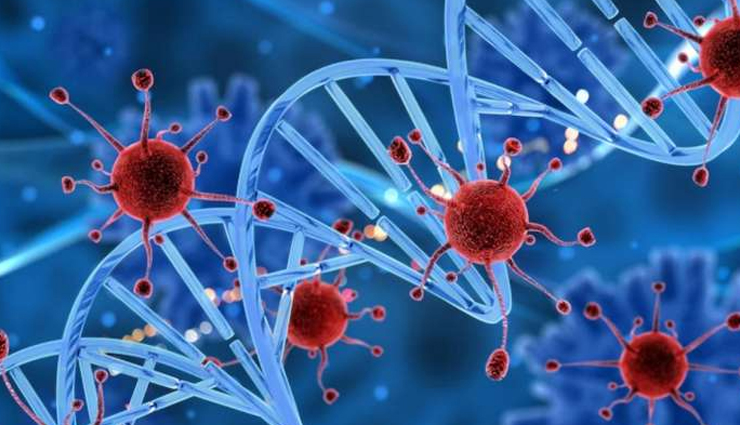- Home›
- Healthy Living›
- Camel Milk Benefits, Nutritional Value, And Side Effects
Camel Milk Benefits, Nutritional Value, And Side Effects
By: Priyanka Maheshwari Mon, 24 July 2023 11:14:20

Camel milk, a traditional elixir of health, is gaining global popularity for its unique nutritional composition and potential health benefits. It has been a staple in nomadic diets for centuries and is now embraced as a sought-after superfood in modern society. Packed with essential nutrients and bioactive compounds, camel milk offers a range of potential advantages, from boosting the immune system to aiding in the management of certain health conditions. This comprehensive guide explores the nutritional value of camel milk, its numerous health benefits, and potential side effects to be considered. Whether you're curious about incorporating camel milk into your diet or intrigued by its unique properties, join us to discover the wonders and cautions of this intriguing milk.
Benefits Of Drinking Camel Milk

# Rich Source of Nutrients
Camel milk is a rich source of essential nutrients, including proteins, vitamins, minerals, healthy fats, immunoglobulins, and antioxidants. It offers various potential health benefits, such as supporting immune function, heart health, brain health, and overall cellular health. The milk's lower lactose content and cholesterol levels make it potentially suitable for individuals with lactose intolerance or those looking to manage their cholesterol levels. However, as with any dietary change, it's essential to consult a healthcare professional before incorporating camel milk into your diet to ensure it suits individual health needs and goals.

# Supports Digestive Health
Camel milk is believed to have potential benefits for digestive health due to its unique composition and bioactive compounds. It contains lower lactose levels, making it easier to digest for those with lactose intolerance. Additionally, bioactive compounds like immunoglobulins and lactoferrin may protect the stomach lining, and beneficial probiotics can improve gut health. Studies suggest anti-inflammatory effects of camel milk, which may benefit individuals with inflammatory bowel diseases. Gastrointestinal peptides in camel milk could regulate gut function. However, individual responses may vary, so consulting healthcare professionals before incorporating camel milk into the diet is advisable for personalized guidance.

# Boosts the Immune System
Camel milk is believed to have immune-boosting properties due to its content of immunoglobulins, lactoferrin, antioxidants, and essential nutrients. These bioactive compounds and nutrients support the immune system by strengthening the body's defense against pathogens and reducing oxidative stress. The diverse nutrient profile of camel milk makes it a potential immune-supportive beverage. However, individual responses may vary, and consulting with a healthcare professional before incorporating camel milk into the diet is advisable, especially for those with specific health concerns.

# Beneficial for Diabetes Management
Cow milk can be beneficial for diabetes management due to its low glycemic index, protein content, rich source of calcium and vitamin D, presence of both saturated and unsaturated fatty acids, and role in supporting hydration. These factors contribute to stabilizing blood sugar levels, promoting satiety, maintaining bone health, and providing healthier beverage options for individuals with diabetes. However, it is important to consider individual responses and consult with healthcare professionals to tailor dietary plans to specific diabetes management needs.

# Potential Anti-Cancer Properties
Camel milk contains unique proteins and bioactive compounds that may act like insulin and help in regulating blood sugar levels. It has lower lactose content, making it a potential option for those with lactose intolerance. However, limited research and inconsistent results suggest caution in relying solely on camel milk for diabetes management. It should not replace standard diabetes treatments, and individual responses may vary. Consulting a healthcare provider before considering camel milk as part of a diabetes management plan is crucial.

# Supports Cardiovascular Health
Camel milk contains bioactive compounds that may positively affect cardiovascular risk factors, such as blood pressure and cholesterol levels. Some studies suggest it could lower total cholesterol, LDL (bad) cholesterol, and triglycerides while increasing HDL (good) cholesterol, potentially benefiting heart health. Additionally, its antioxidant properties may protect against oxidative stress and inflammation linked to cardiovascular disease. However, camel milk should not replace a heart-healthy lifestyle, including proper diet, exercise, and managing other risk factors, for maintaining cardiovascular health. Further research is needed to confirm these effects.

# Aids in Autism Spectrum Disorder (ASD)
Camel milk contains bioactive compounds that proponents believe could potentially impact the immune system and brain function, leading to improvements in behavioral and cognitive symptoms associated with Autism Spectrum Disorder (ASD). However, the evidence supporting these claims is not strong enough to draw definitive conclusions. ASD is a complex neurological condition with unclear causes and treatments, and the effectiveness of camel milk or other alternative therapies may vary greatly among individuals. It's essential to approach such claims with caution and consult with healthcare professionals experienced in autism management for appropriate guidance and treatments.

# Skin Health Benefits
Camel milk has potential skin health benefits, as it is believed to moisturize the skin, exhibit anti-inflammatory effects, and contain antimicrobial components that may help prevent skin infections. It also serves as a source of antioxidants, which protect the skin from oxidative stress. Additionally, camel milk's collagen content and immunomodulatory properties may promote skin elasticity and contribute to overall skin health. However, more research is needed to validate these effects and determine the optimal use of camel milk for skincare. Consulting a healthcare professional or dermatologist is essential before incorporating camel milk into a skincare regimen.
# Hypoallergenic Nature
Camel milk is considered hypoallergenic due to its unique protein composition, lower lactose content, and absence of A1 beta-casein found in cow's milk. These factors make camel milk less likely to cause allergic reactions or digestive issues in some individuals. Additionally, camel milk contains immunoglobulins and bioactive peptides that may have beneficial effects on the immune system and potentially reduce allergic responses. However, individual responses to camel milk can vary, and anyone with known milk allergies or intolerances should exercise caution and consult a healthcare professional before consuming it.
# Suitable for Lactose Intolerance
Camel milk is considered suitable for individuals with lactose intolerance due to its lower lactose content compared to cow's milk. Lactose intolerance is a condition where the body lacks enough lactase enzyme to digest lactose, leading to digestive issues after consuming regular milk. Camel milk's composition makes it easier to digest for some people with lactose intolerance. However, individual tolerance levels can vary, and it's advisable to start with small quantities. Lactase supplements or lactose-free camel milk products may also be options for those with more severe lactose intolerance.

The Nutritional Value Of Camel Milk
The nutritional value of camel milk per 100 ml:
Calories: Approximately 70-120 calories, depending on the fat content (whole, low-fat, or skim).
Protein: Around 3-4.5 grams of protein, which is slightly lower than cow's milk but still a good source of essential amino acids.
Fat: The fat content can vary from 2-5 grams per 100 ml, with lower fat options available for those who prefer reduced-fat milk.
Carbohydrates: Contains lactose, the natural sugar found in milk, usually around 4-5 grams per 100 ml.
Vitamins: Provides essential vitamins such as vitamin C, vitamin B1 (thiamine), vitamin B2 (riboflavin), vitamin B12, and vitamin A.
Minerals: Contains minerals like calcium, phosphorus, magnesium, potassium, and zinc.
Immune Factors: Camel milk is known for containing immunoglobulins, lysozymes, and other immune factors that may have potential health benefits.
Antioxidants: Camel milk contains antioxidants, such as vitamins C and E, which help protect cells from oxidative damage.
Lower Allergenic Proteins: Camel milk is considered hypoallergenic for some individuals due to its unique protein composition.
How Camel Milk Different From Cow Milk
Nutritional Composition: Camel milk and cow's milk have different nutritional profiles. Camel milk typically contains less fat and cholesterol compared to cow's milk. It also has higher levels of certain vitamins and minerals, such as vitamin C, iron, and zinc, while cow's milk is richer in vitamin B12.
Protein Composition: The proteins in camel milk differ from those in cow's milk. Camel milk contains unique proteins like beta-lactoglobulin and beta-casein variants, which may contribute to its hypoallergenic nature and make it easier to digest for some individuals.
Lactose Content: Camel milk generally has a lower lactose content than cow's milk, making it a potential option for people with lactose intolerance who may experience digestive discomfort after consuming regular cow's milk.
Fatty Acid Profile: The types of fatty acids found in camel milk and cow's milk vary. Camel milk has a higher proportion of long-chain fatty acids, such as unsaturated fats and omega-3 fatty acids, which are considered beneficial for heart health.
Flavor and Taste: Some people describe the taste of camel milk as slightly saltier and richer than cow's milk. The flavor can vary depending on factors such as the camel's diet and environment.
Color: Camel milk is typically whiter in color compared to cow's milk, which has a more creamy appearance.
Antibacterial Properties: Camel milk contains natural antimicrobial compounds, such as lysozyme and lactoferrin, which may help protect against bacterial growth and contribute to its longer shelf life compared to cow's milk.
Environmental Impact: Camels are generally considered more environmentally friendly milk producers compared to cows, as they require less water and can tolerate harsher climates.
Is Drinking Camel Milk Safe and Are There Any Side Effects?
There is limited evidence to conclusively state the side effects of camel milk, likely due to its relatively low impurity content compared to other milk sources. Camel milk has few reports of toxicity and is generally considered safe.
However, a major drawback of camel milk is its high production costs, making it expensive for consumers, especially in countries that import it and impose hefty taxes.
Ethical farming and sustainability concerns have been raised regarding camel milk production, and it also has a shorter shelf life compared to other milk types. Additionally, processing camel milk into yogurt or curd takes longer, and there is debate over whether it should be boiled/pasteurized or consumed raw to preserve its potential health benefits.
While camel milk is rich in nutrients and antioxidants, offering potential health benefits such as liver protection, diabetes management, and even potential anti-cancer effects, there is still a need for more research on its side effects and safety.
Camel milk is available in powdered or frozen forms commercially, and moderation in consumption may allow individuals to enjoy its benefits while considering its limitations and uncertainties.
In summary, while drinking camel milk may offer various health benefits, its safety and potential side effects require further investigation. Consumers should weigh its advantages and disadvantages and exercise moderation in its consumption.





